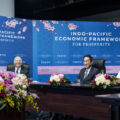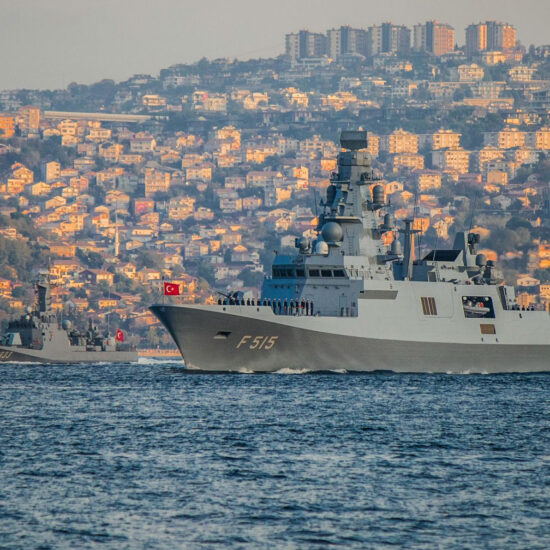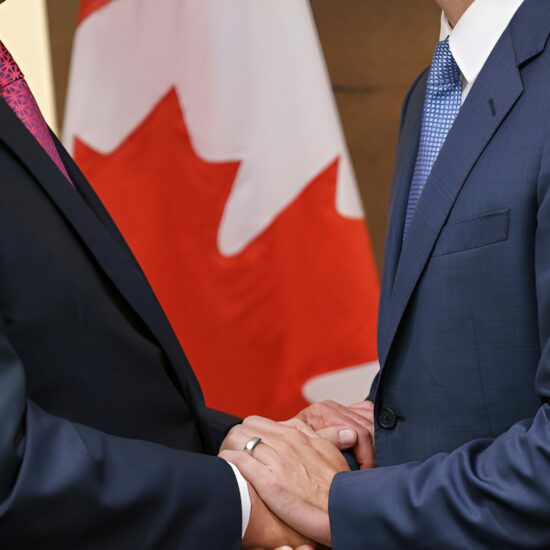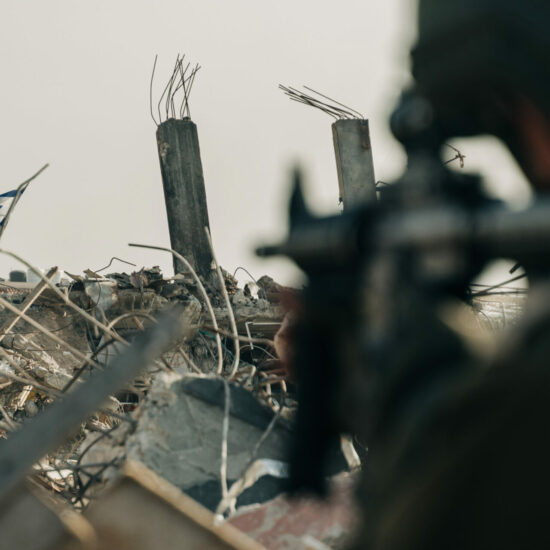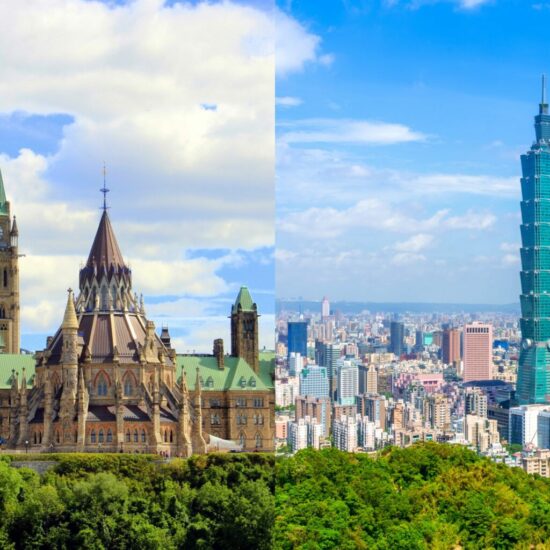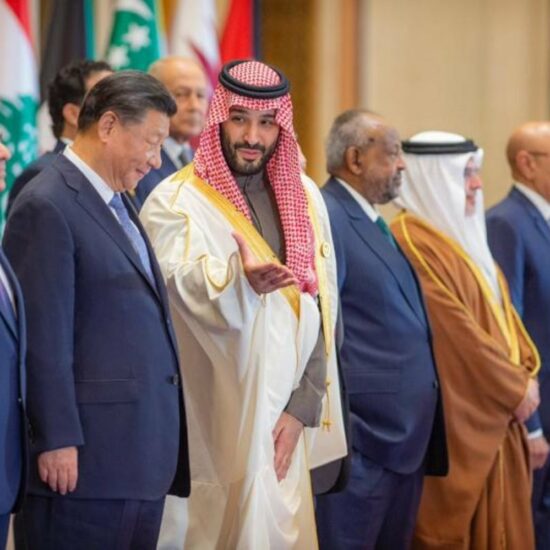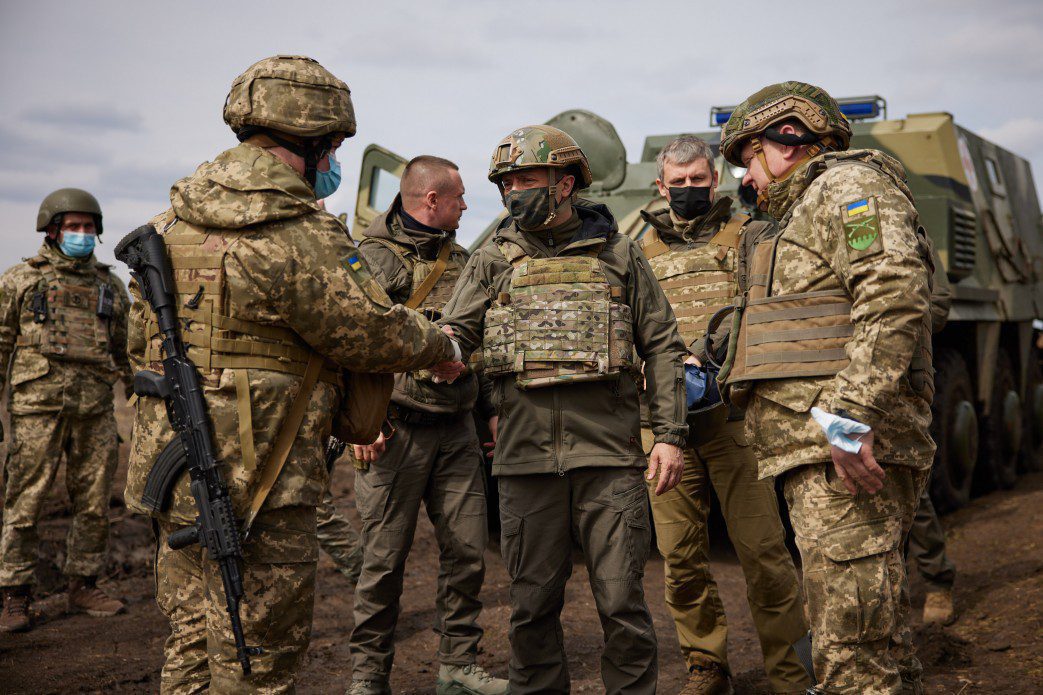
Image credit: Presidential Office of Ukraine
As 2021 comes to an end, the prospect of war between Russia and Ukraine is again making headlines. Ukraine is pressing Canada to do more to help it. This week, the country’s defence minister Oleksii Reznikov urged NATO’s “Anglo-Saxon” members – the US, UK and Canada – to act outside the Alliance and send troops not just to Ukraine but right up to the front line of the country’s war with rebel Donbass.
Canada is not keen. After a flurry of speculation that Canada might send additional troops to Ukraine, the Chief of the Defence Staff, General Wayne Eyre, declared last week that it would not do so. According to Eyre, additional Canadian troops in Ukraine are more likely to provoke than to deter the Russians. Eyre’s statement is a sign of sensible caution in Ottawa. Still, his words suggest that the Canadian government does not understand the dynamics of the war in Donbass and remains ill-placed to pursue a sensible policy.
Talk of deterring or provoking the Russians suggests that the root cause of the war – which has wracked Ukraine’s Donetsk and Lugansk provinces for the past seven years – is to be found in Russia. But while Russia certainly deserves a large amount of blame, the war is not just a matter of “Russian aggression.” It also has domestic causes for which the authorities in Kyiv are in large part responsible.
The threat of a full-scale Russian invasion is overblown. Not only would it be immensely costly, but it would permanently shatter Russia’s relationship with the West. Moreover, the Kremlin has made no apparent effort to prepare Russian public opinion for it. Such an invasion is therefore extremely unlikely.
That said, there is one scenario in which it is not merely possible but likely. This would be if the Ukrainian government decided to solve the problem in Donbass by means of an all-out military assault on the rebel Donetsk and Lugansk People’s Republics (DPR and LPR), in effect attempting to repeat Azerbaijan’s recent success in recapturing lost territory from Armenia.
Russia’s president Vladimir Putin has made it clear that he would not tolerate this, with Moscow hinting that an attempt to reconquer Donbass by force would result in the end of Ukrainian statehood. There can be little doubt that should Kyiv act in such a way, the Russian army would counter-attack with overwhelming force. The results would be catastrophic for Ukraine.
If Canada is truly interested in preventing a Russian invasion of Ukraine, it must bear this scenario in mind. It needs to be thinking less about deterring Moscow and more about restraining Kyiv. Sending additional troops to Ukraine would be entirely the wrong thing to do. So, too, would be the provision of new weapons, public statements of unconditional support, and the like. The danger is a repetition of what happened in Georgia in 2008, when Georgian president Mikheil Saakashvili misread signals from the Americans and launched an ill-fated attack on South Ossetia that provoked a violent Russian response. It is important that Kyiv be under no illusions that the West will support it, let alone defend it, if it acts in a similar way.
This only reduces the immediate chances of a major war. It does not resolve the underlying problem, namely the rebellion in Donbass. The potential for large-scale conflict will remain as long as the war there continues. Ending it should therefore be a priority.
A solution exists in the form of the 2015 “Minsk 2” Agreement, which demands that Kyiv grant Donbass “special status” (i.e., political autonomy) and amnesty for those involved in the rebellion. It is almost inconceivable that any political settlement of the Donbass conflict could offer anything less. The DPR and LPR are not going to lay down their arms without getting something substantial in return. Nor will Moscow push them to do so. Autonomy and amnesty are the minimum concessions that Kyiv must make if it wishes to regain its lost provinces.
Unfortunately, Kyiv refuses to accept this and has failed to enact the promises it made at Minsk. Its refusal has had the full support of Western states such as Canada, who have made no obvious effort to induce Ukraine to fulfil its obligations. The diplomatic, economic and military support lent to Ukraine has deprived Kyiv of any incentive to do so. Indeed, the situation that has endured since early 2015, in which the war in Donbass continues but at a very low level, suits Kyiv just fine: it keeps Ukraine high on the international agenda, and so secures Western support, but does so at low cost.
In short, Western policy has encouraged Ukraine to act in a way that prevents a peaceful settlement of the war in Donbass. The current war scare involving Russia should focus minds in Canada and elsewhere on the dangers of this approach, and should be used as an opportunity to reconsider policy.
Support for Ukraine should be linked to Kyiv’s fulfilment of its obligations under the Minsk agreement. Only that way will Ukraine’s incentives change in a manner conducive to peace. Domestic political considerations mean that it will be difficult for Kyiv to grant Donbass autonomy, but at a very minimum Canada and its allies should be insisting on a complete ceasefire between the Ukrainian and rebel armies, as required in the Minsk accord. Ideally this would be enforced by international peacekeepers.
Such a plan would have the effect of freezing the conflict in Donbass, de facto leading to the independence of the DPR and LPR. As such, it would meet resistance in Ukraine. But a ceasefire enforced by international peacekeepers would remove the possibility of the war escalating in a way that might induce a full-scale Russian invasion. Indeed, it would eliminate any excuse Russia might have to invade Ukraine. As such, it is the best guarantee of peace in the region, and as such ultimately in Ukraine’s interests as much as anybody else’s.
Putting such a plan into action requires a change in the West’s mode of thought. For the past seven years, it has been assumed that the path to peace lies through coercing Russia. This has failed, and will continue to fail, for the very basic reason that the solutions to Ukraine’s problems lie in Kyiv and not Moscow. It is time for Canada at last to understand this.
Paul Robinson is Professor of Public and International Affairs at the University of Ottawa and a Senior Fellow at IPD.

